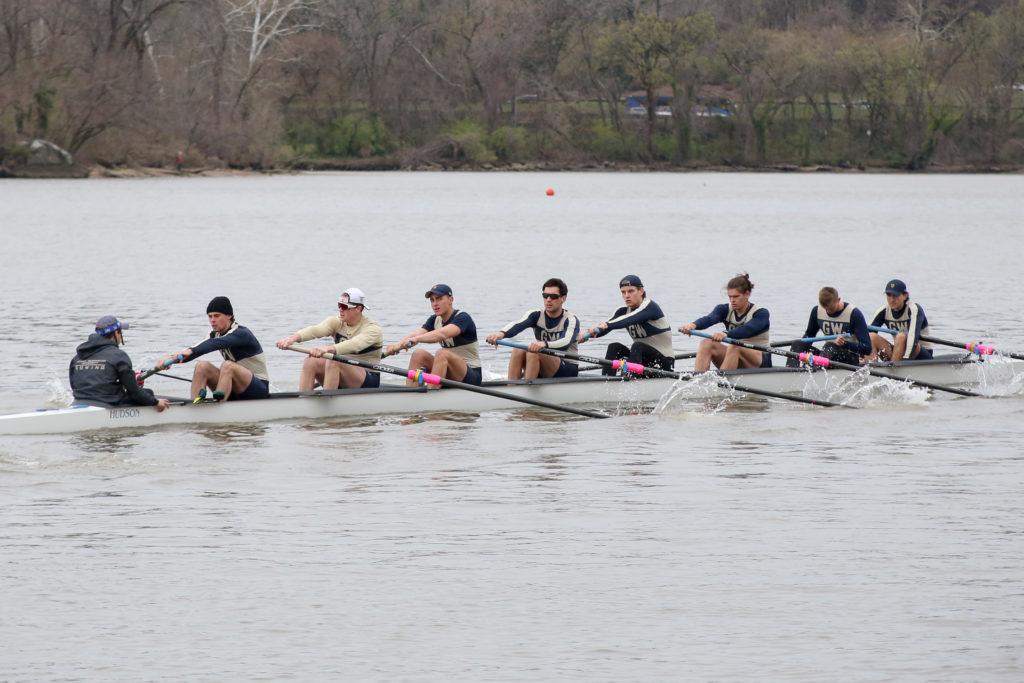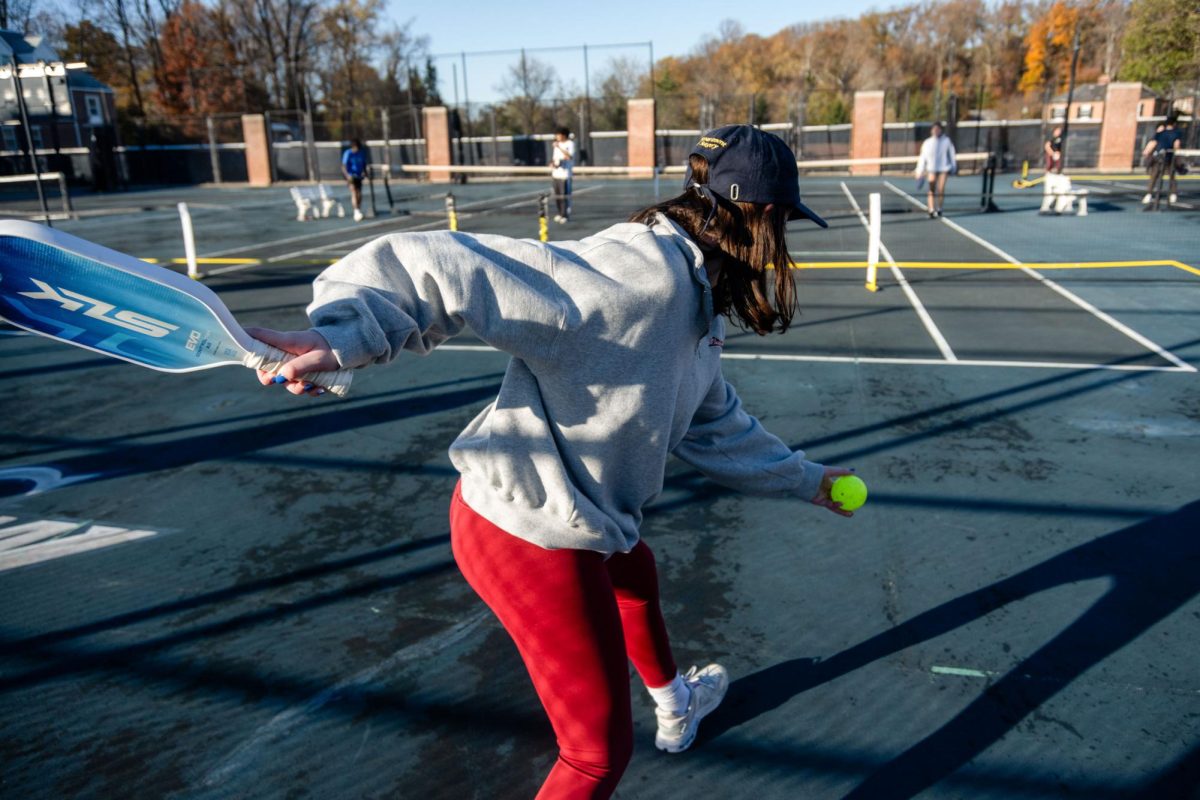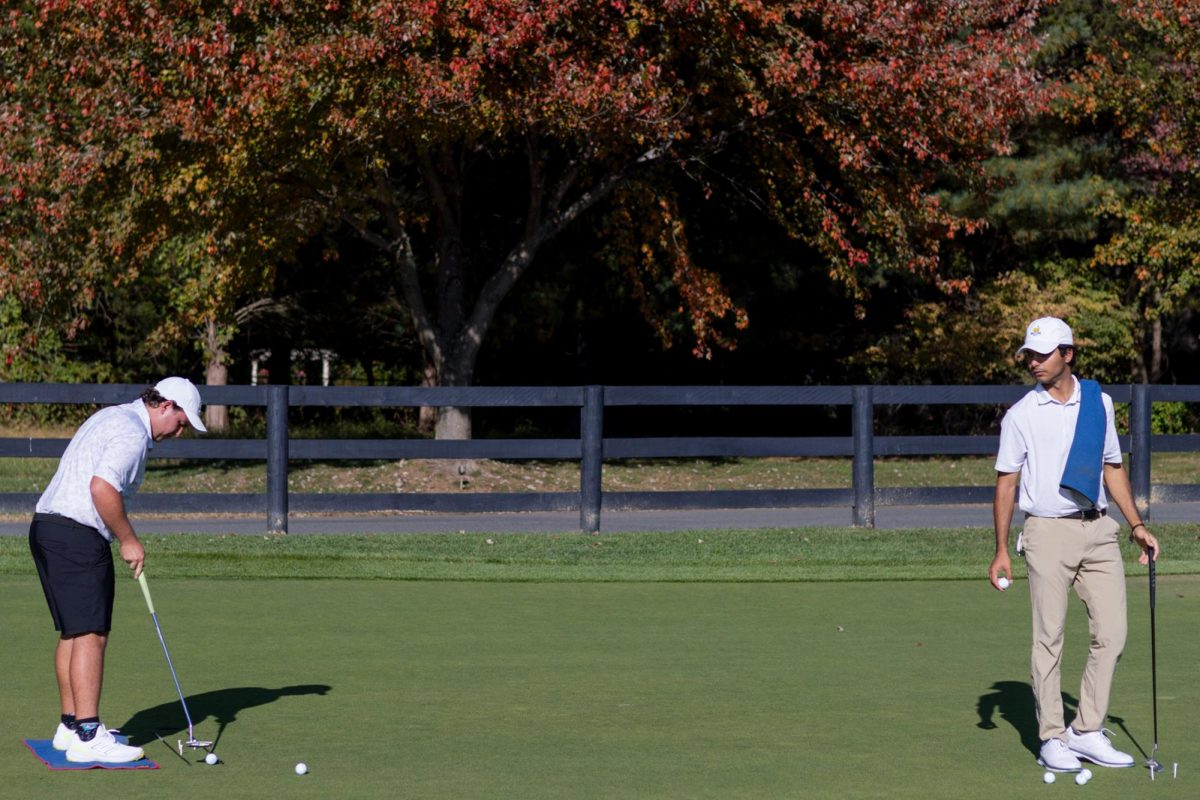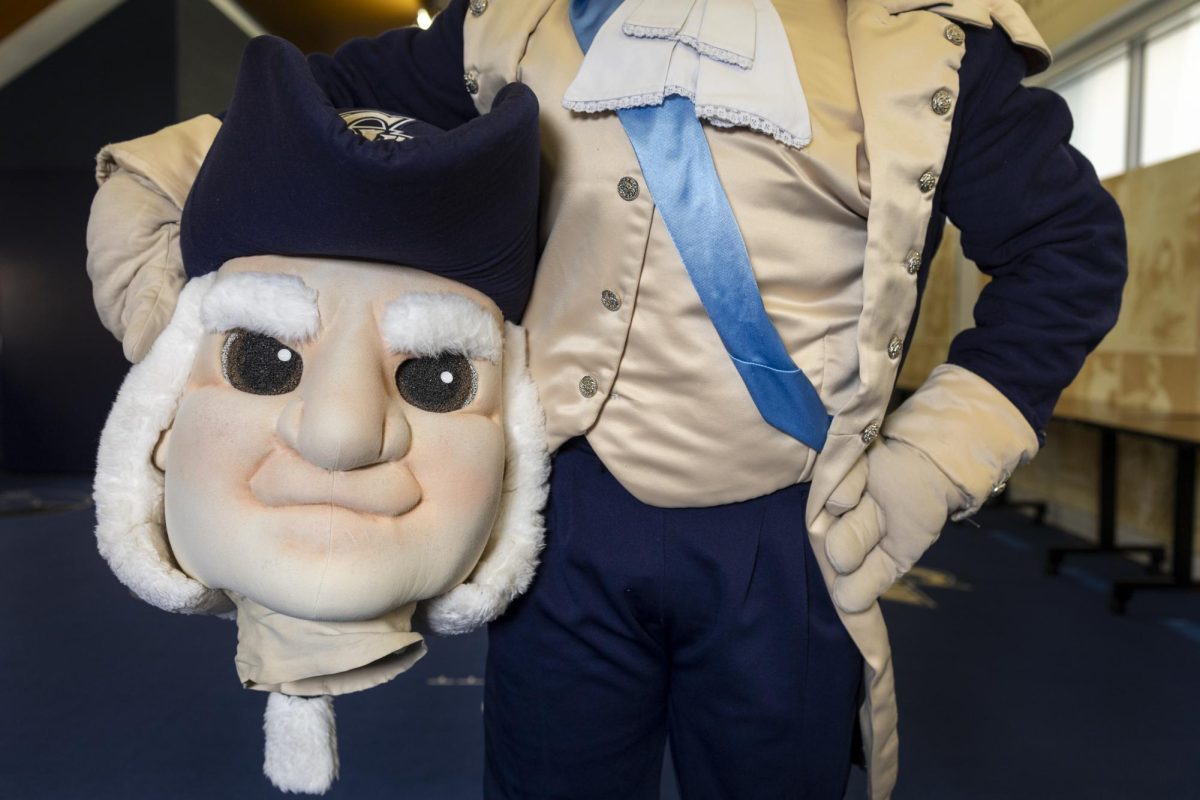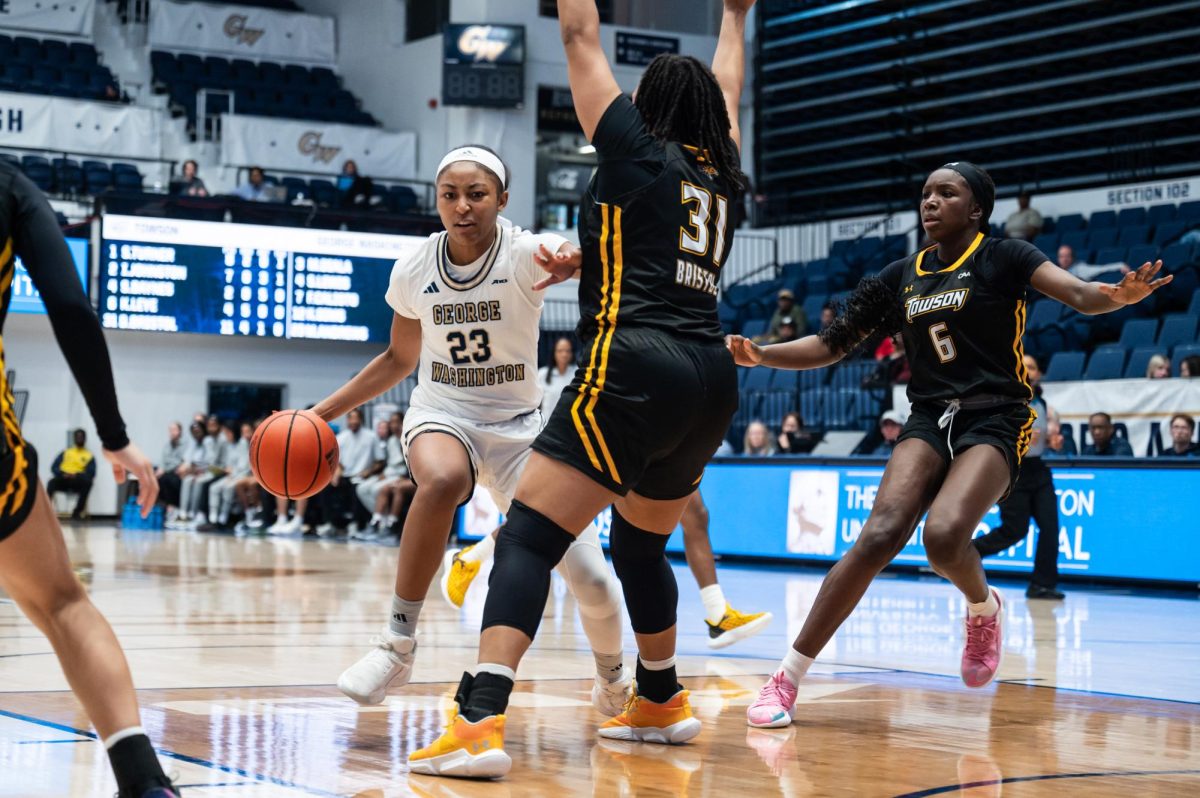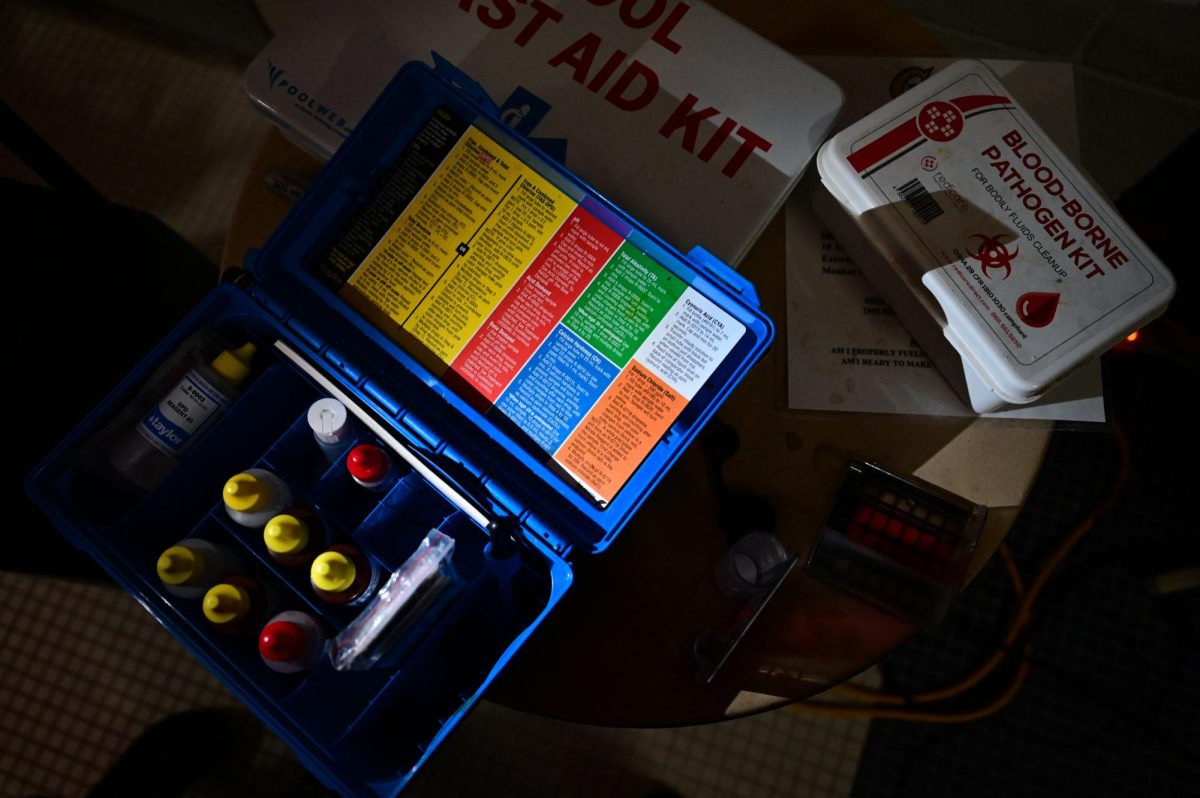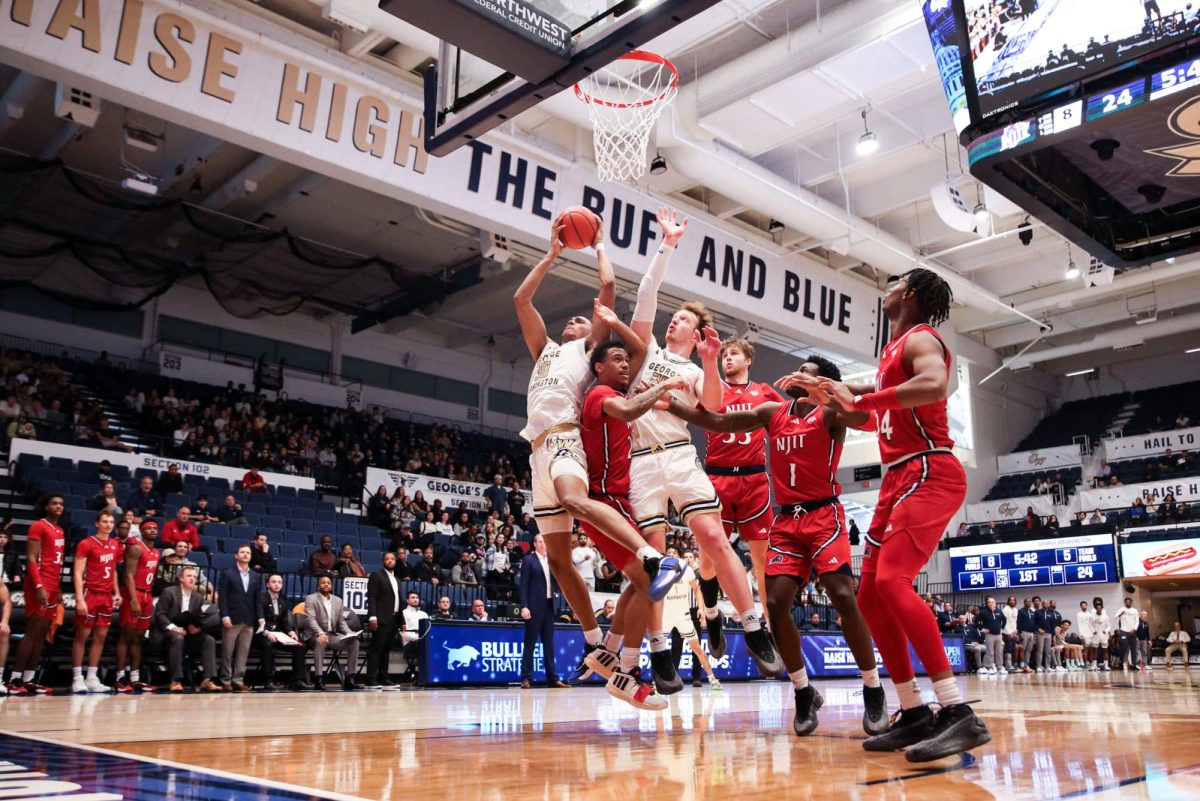On the morning of July 31, 2020 while lying fast asleep, sophomore Aidan Rowland received a Facebook notification from Men’s Rowing Head Coach Eric Gehrke to join a Zoom call with Athletic Director Tanya Vogel in 15 minutes.
The men’s rowing team and multiple other programs joined the call, during which Vogel informed them that men’s rowing and six other teams would be terminated following the end of the 2020-21 season. But Rowland had missed the meeting. He said he woke up to multiple texts from his teammates and coaches. Half asleep, he called his teammates to confirm the news, who were all in a state of shock.
Within days of the decision, all but two of the incoming freshmen rescinded their applications. Despite the obstacles, the team achieved its highest ranking in program history: seventh in the nation.
“There’s the sense of accomplishment, there’s the sense of this is never going to happen again, then there’s that renewed sense of ‘We have to keep fighting,’” Rowland said.
Despite their desire to save their varsity status, Rowland said the team kept their heads down and focused on having the best season they possibly could. He said they did everything they could to protect themselves from coronavirus and prevent their last season from ending prematurely.
Athletic department spokesperson Brian Sereno declined to facilitate interviews with members of the athletic department about the cut.
Senior Brian O’Rourke said “all of us or none of us” became a rallying cry for the team, the motto of former GW rower Nicholas Upton, who drowned off the coast of South Africa in 2015. He said the motto is emblazoned on the walls of the gym, a reminder of the unending drive to work for each other.
On a rainy Saturday featuring 20-mile-per-hour gusts in West Windsor, New Jersey, men’s rowing finished its final season at the IRA National Championship on Mercer Lake.
“It was the perfect ending to a crazy season,” Ames said. “It was like this weekend was built for us. I remember getting on the water and all the guys in the boat. They’re usually pretty chatty. They like to have fun. But this weekend, they were just so on point, so laser-focused all the way until the start of the race.”
O’Rourke said he still remembers Gehrke’s speech before the last race when he said the team had 70 years of history to prove in 2,000 meters. O’Rourke said there was an intensity about the day he’d “never experienced before.”
At the end of the day, the varsity eight and second varsity eight finished twelfth and seventh in the petite finales, respectively, both the best placements in program history. The third varsity eight placed ninth in the country, yet another program best.
Rowing alumnus Matt Kerwin said he was “ecstatic” that the team performed the way they did. He rowed for the varsity eight in 2019, helping the team place first in the Third-Level Final at the IRA National Championship and achieve thirteenth in the nation, the program’s highest ranking until this year.
“I woke up super early that morning, and I was watching the live stream. Me and a couple of other guys from the class of 2019 were doing the exact same,” Kerwin said. “We were texting in our group chat the entire time, just going nuts.”
Though GW’s program wasn’t the only rowing program affected by nationwide cuts, it is one of the few remaining teams yet to be reinstated. Stanford’s program was reinstated after legal backlash and a concerted fundraising effort by athlete alumni. Dartmouth’s men’s program was reinstated to remain in compliance with Title IX.
Since the season has ended, the team has resumed its push for reinstatement, issuing a formal statement to those in support of their cause. Rowland was given the password to the rowing team’s Instagram page and began a campaign for reinstatement by posting a video on June 30 titled “This is Not the End” created by then senior Oliver Peacock.
Patrick George, the captain of the team, spearheaded a petition to merge the Intercollegiate Rowing Association with the NCAA in the hopes of providing varsity rowing teams more funding and protection across the country. GW’s women’s rowing team is an NCAA sport and survived the cuts made by the University.
In July, US Rowing CEO Amanda Kraus showed her support in a letter to the Board of Trustees and administrators, but the University has remained steadfast in its decision.
Kerwin said he hopes the Alumni Association will put together a fundraising effort for reinstatement down the line.
“But until then, for people like me, for people who are younger, the younger alumni who have reaped the benefits of varsity status being an Eastern Sprints team, being at the IRAs the last 15 or 20 years, a lot of us are really just waiting,” Kerwin said.
2019 rowing alumnus Jay Jacobs said he was brought to the program to build it on the national stage. He was another member of the squad rowed for the varsity eight in 2019 that placed thirteenth in the nation.
“We did everything that we were told we wanted to accomplish, and then to hear that those accomplishments were then to be nullified by putting this abrupt halt to our success was just devastating,” Jacobs said.
Former assistant coach and alumnus David Lincoln said it was a shame that Gehrke, a D.C. native who had moved his family back to his hometown after earning the head coach job in 2019, couldn’t see out his plan to make GW’s rowing program one of the best in the nation.
“When the music stopped, and suddenly it was all over, we looked back at the work we’d done and there was that inclination that, ‘OK, what was this for?’” Lincoln said.
Though Lincoln said he is hopeful the program will get reinstated eventually, he said the team won’t resume at the same level of performance it achieved this past year. He said the team will have to begin a long rebuilding process after losing fresh collegiate recruits.
Since the team has been demoted to club status, it will no longer be able to compete in the Eastern Sprints League or the IRA National Championship, the premier collegiate-level competitions for the sport. Jacobs, the rowing alumnus, said the loss of GW’s program will not only hurt the club team, but the sport at large in the nation. He said there’s one less spot now for athletes to compete at the Division I level.
Lincoln said he is also concerned how the impact will be felt in the greater GW athletic community. Despite the adversity the team faced this season, the team won the Colonial Cup, an award given to the GW varsity team for the most school spirit. Lincoln said he fears each team will focus on preserving themselves rather than supporting one another.
Throughout the year, Lincoln said he tried to set up a transition team of alumni, current athletes, and officials in the athletic department to ease logistic transition from varsity status to club status. But he said the team is still in the process of hiring a coach, so for now, many of those organizational duties rest with the athletes themselves.
“It doesn’t take just one year to build a good rowing program,” he said. “It takes many years of building up good recruiting classes on top of each other to have sustainable success. That’s not to say we can’t get back there, it’s just that it is a long process.”


